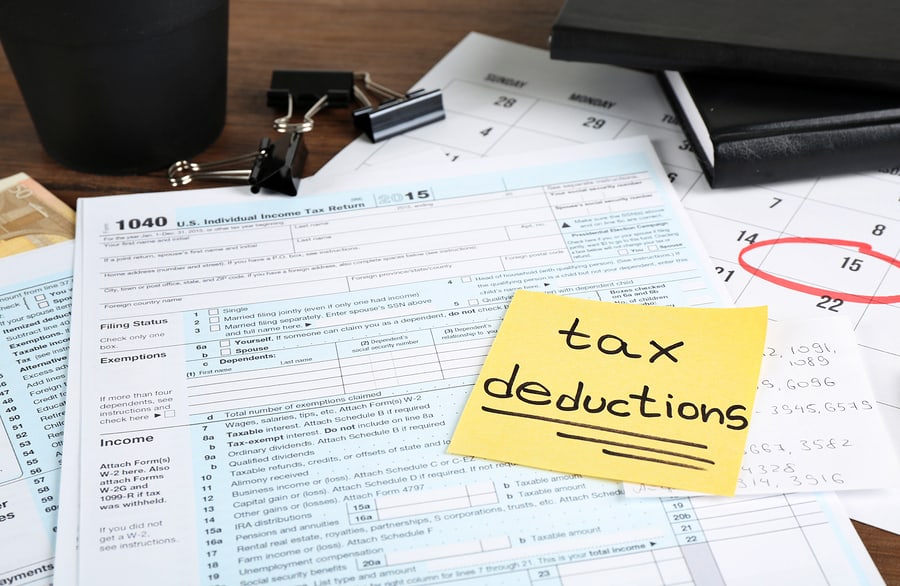It might be too early to start thinking about the tax season; but if you’ve been keeping track of the recently proposed amendments to the Texas Constitution, you know that now is a great time to check if you are taking advantage of all the property tax exemptions you might be eligible as a Texas homeowner. If you are a first-time homeowner, you might consider checking everything you need for tax season before it gets busier during the holidays. Filing for a Homestead Exemption may help you save property taxes on your home and is easier than you think!
SB 8 by Senator Bettencourt – gives homeowner benefit of the resident homestead exemption the first year of acquiring your property instead of having to wait until January 1st of the following year for the exemption to take effect.
Under Senate Bill 8, homeowners don’t have to wait until January 1st of the following year to receive the benefit of their homestead exemptions. Senator Bettencourt said that SB 8 addresses the longstanding issue that prohibits Texas homeowners from getting hundreds or thousands of dollars of property tax relief in their first year of homeownership, which meant paying more than they should in property taxes.

Property Tax Exemptions for Homeowners
A property owner in Texas must apply or file for an exemption where requirements can vary by exemption such as those for individuals, families, or disabled veterans and their families. Homeowners who reach age 65 or who become disabled during a tax year, will qualify immediately for those exemptions. Moreover, Proposition 8 adds to extend property tax breaks and be readily available to the spouse of a service member killed in action and to spouses of troops who were killed in the line of duty but not in combat.
What is a Homestead Exemption?
A homestead exemption is essentially a property tax exemption that helps homeowners save taxes on their homes. An exemption removes part of the value of your property from taxation and lowers your taxes. For example, if your home is valued at $350,000 and you qualify for a $20,000 exemption, you pay taxes on your home as if it was worth only $330,000. A homestead exemption can shield a homeowner’s equity as it can protect a homeowner in distress from the loss of his or her home due to the following reasons such as – personal bankruptcy, death of a home-owning spouse, age of the homeowner, and lenders and creditors who might otherwise foreclose on the residential property. If you want to know in detail what is Homestead Exemption, you might want to check our previous post – Texas Homestead Exemption Explained.
What Kinds of Homestead Exemptions Are Available?
There are several types of exemptions
- General Residence Homestead Exemption – Available to taxpayers who own and reside at a property as of January 1st of the year
- Person Age 65 or Older (Or Surviving Spouse) Exemption – Available to property owners the year they become 65 years old. If a homeowner claiming this exemption passes away and their spouse is 55 or older and continues to own and claim the home as their residence homestead, the spouse can continue to hold the exemptions and tax ceiling on the property.
- Disabled Person (Or Surviving Spouse) Exemption — Available to property owners who meets the Social Security Administration’s standards for disability. A person who receives disability benefits under the Federal Old Age, Survivors and Disability Insurance Program could also qualify. It’s important to note that even if a property owner is not receiving disability benefits, the owner is still eligible if the taxpayer has a medically determinable physical or mental impairment that prevents them from engaging in any substantial gainful activity and the impairment is expected to last for at least 12 months or result in death. Morever, if a homeowner claiming this exemption passes away and their spouse is 55 or older and continues to own the home, the spouse can continue to hold the tax ceiling on the property.
- 100% Disabled Veteran (Or Surviving Spouse) Exemption — Available to disabled veterans who receive 100% disability compensation due to a service connected disability and a rating of 100% disabled or of individual unemployability from the Department of Veterans Affairs can receive an exemption from taxation of the total appraised value of the veteran’s qualifying residence homestead. Sdisabled veteran who receives 100% disability compensation due to a service connected disability and a rating of 100% disabled or of individual unemployability from the Department of Veterans Affairs can receive an exemption from taxation of the total appraised value of the veteran’s qualifying residence homestead.
- Veteran exemption — Available for veterans who have a disability, their spouses and survivors, and spouses and survivors of military personnel killed on active duty. The amount of the exemption depends on the percentage of service-connected disability. 100% disabled equals 100% exemption.
- Optional percentage exemptions — Any taxing unit, including a school district, city, county or special district, may offer an exemption for up to 20% of your home’s value. The amount of an optional exemption can’t be less than $5,000, no matter what the percentage is. For example, if your home is valued at $20,000 and your city offers a 20% optional exemption, your exemption is $5,000, even though 20% of $20,000 is just $4,000. The governing body of each taxing unit decides whether it will offer the exemption and at what percentage. This percentage exemption is added to any other homestead exemption for which the applicant qualifies.
Who’s Eligible for the Homestead Tax Exemption?
In Texas, qualifying homeowners can get a $25,000 exemption, but some school districts can limit the exemption to 20% of the property’s appraised value. Additional exemptions are available for seniors, persons with disabilities, solar and wind-powered energy, and charitable organizations and businesses.
More Tips for New Homebuyers
- Homeowners who have inherited their home may qualify for a money-saving homestead exemption according to the Texas law enacted in 2019. Property owners who are receiving a partial homestead exemption on heirship property can now apply for a 100 percent homestead exemption even when the home has co-owners.
- If you buy or sell a home that has only a general homestead exemption on it, the exemption normally stays in place for that entire tax year. However, the new owner will have to qualify for the exemption by filing an application in his or her own name for the following year. Take note that if you buy or sell a home that has an existing over-65 or disability exemption, the rules are different.
- If you move temporarily from your home, you may continue to receive the exemption if you do not establish a principal residence elsewhere.
- Don’t hesitate to contact your local real estate profesisonal and appraisal district for more information regarding homestead exemption, especially if you want to more more about the types of exemption and eligibility.
Work with Apogee Properties
Apogee Properties is Houston’s leading real estate management company. We work and live in Houston and our property managers are local. We’ve been in business for more than a decade providing comprehensive property management services in the Houston region ranging from a studio condo to a multi-family million dollar estate.
Apogee looks forward to hearing from you and sharing what we can offer to your Houston property. Contact us today to learn more about our property management services, and what we can do for you and your rental property.
Get your property managed today!











My wife’s cousin and her husband had a five-bedroom Mobil. when he passed away, her daughters told her she did not need a five-bedroom house. She sold the Mobil and had a 24X40 home built. They live in The Southern part of San Jacinto County. The house is on two acres of land. They have put a value of one hundred and eighty thousand on that one-bedroom home. The County does not send a bus to that erae so the children go to school in liberty County. They pay property tax in San Jacinto County but have to pay school tax to Liberty County. Liberty Countys tax is a lot higher because they are now building five new high schools because of all the immigrants in that County. The people in that part of San Jacinto County are paying more that the rest of the people because of this. Her income is about $800.00 a month yet her taxes is $2900. a year. Maryland passed a tax for homeowners based on their income. According to the Constitution people in other states should have the same rights. The way the Texas laws are elder people are losing their homes and are forced into nursing homes